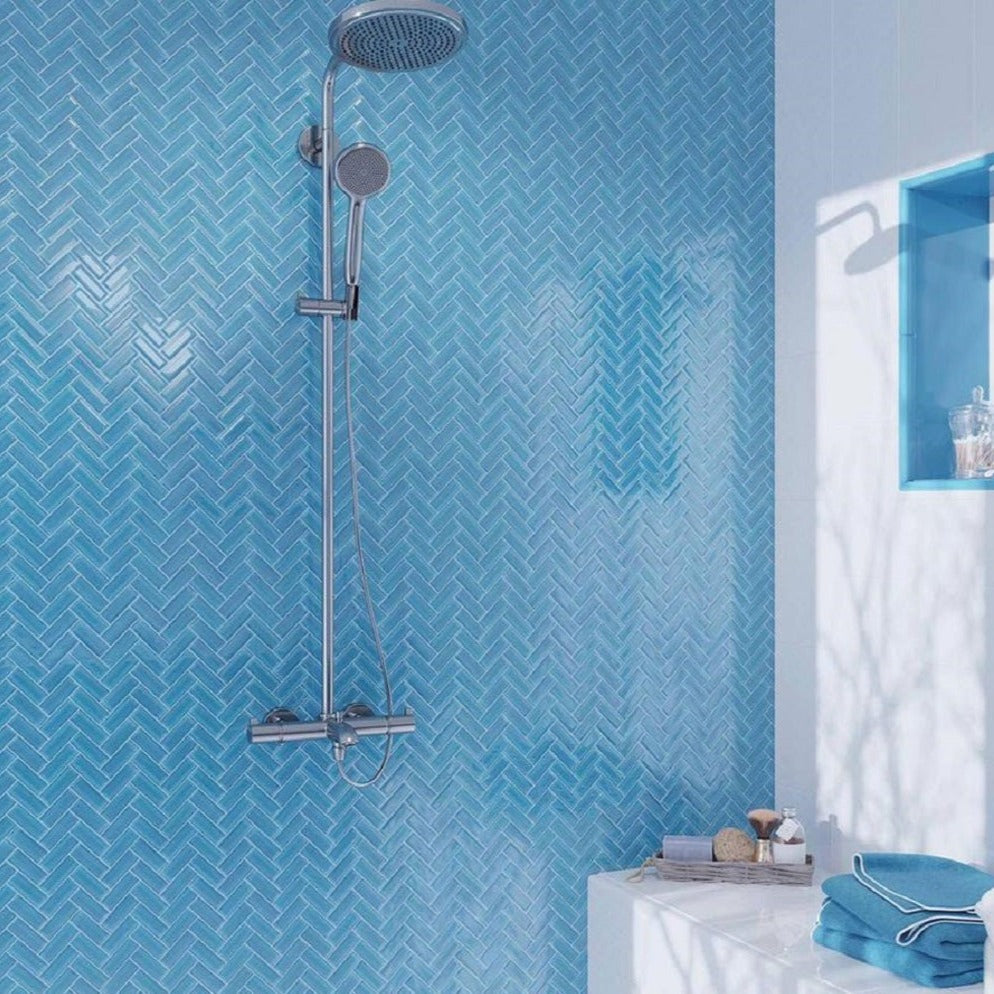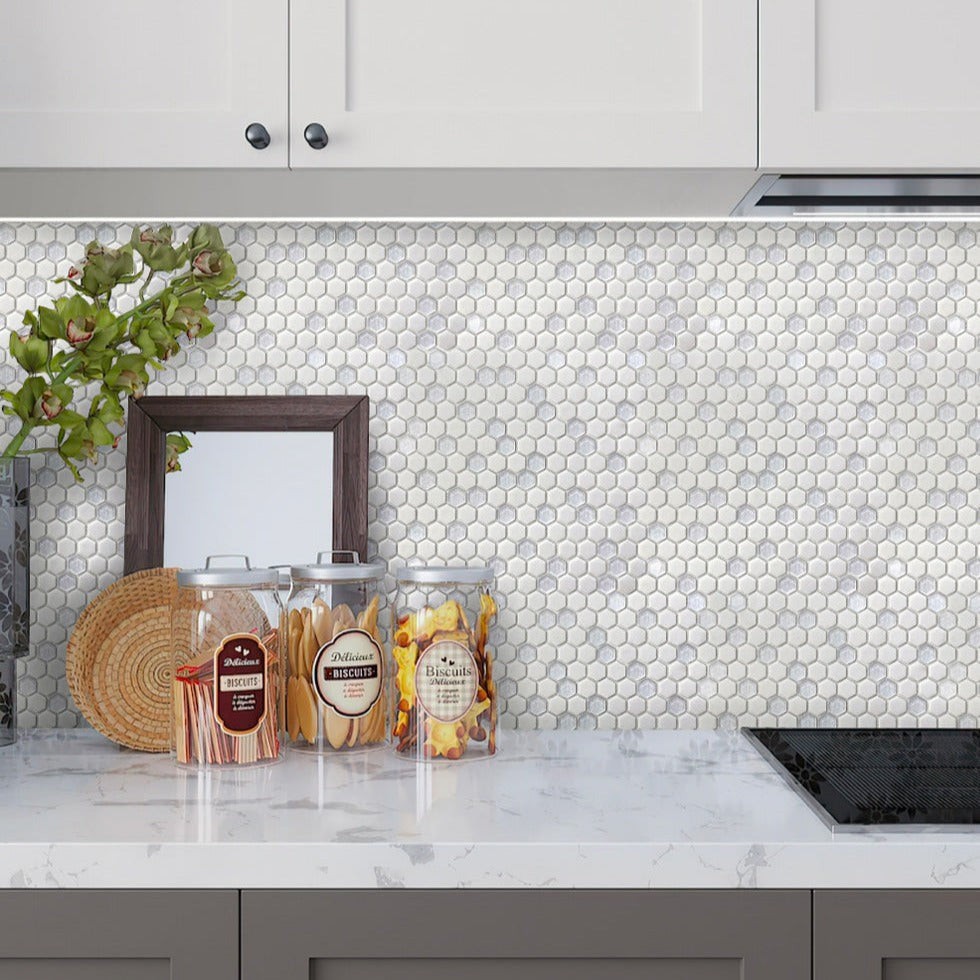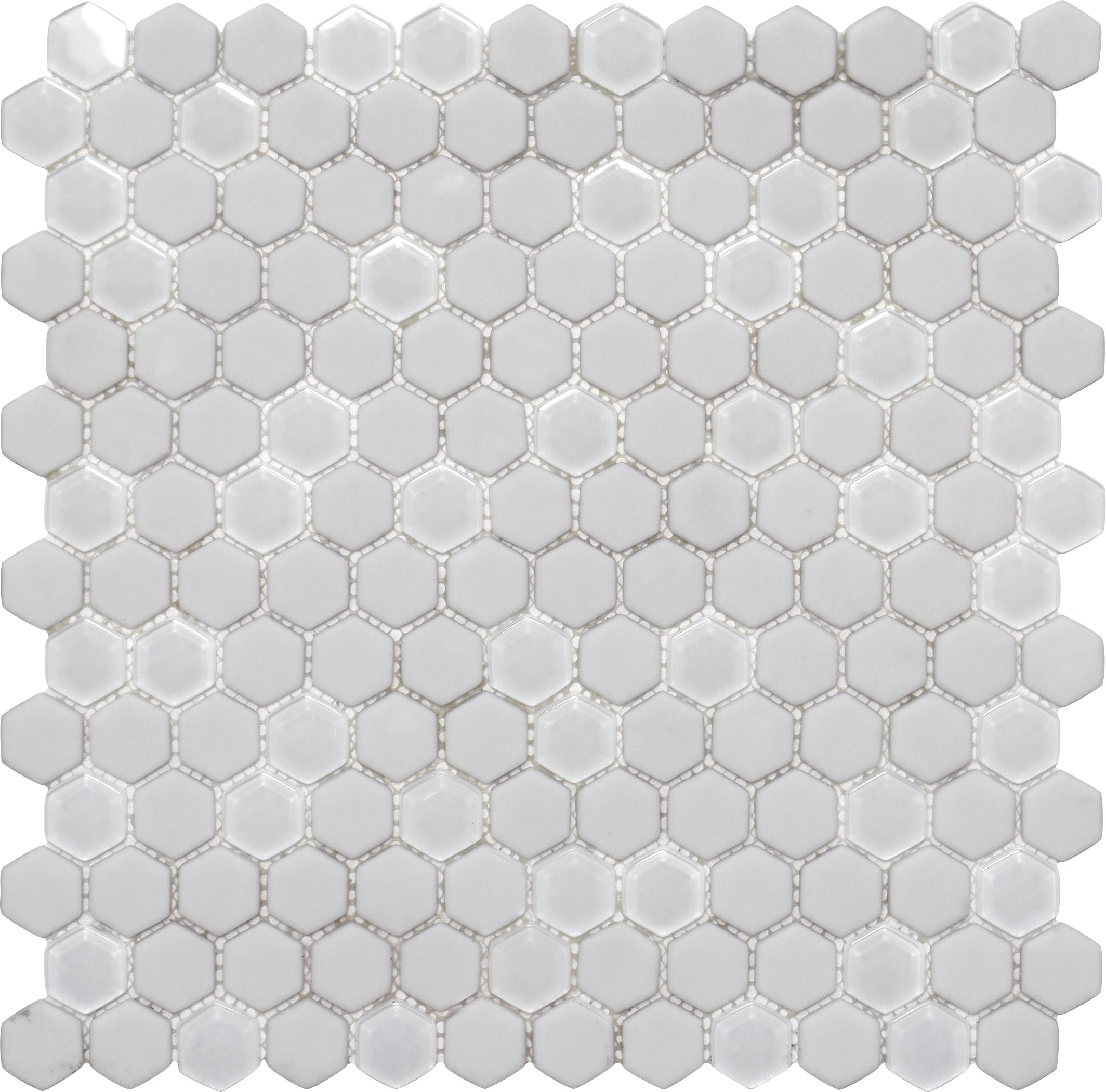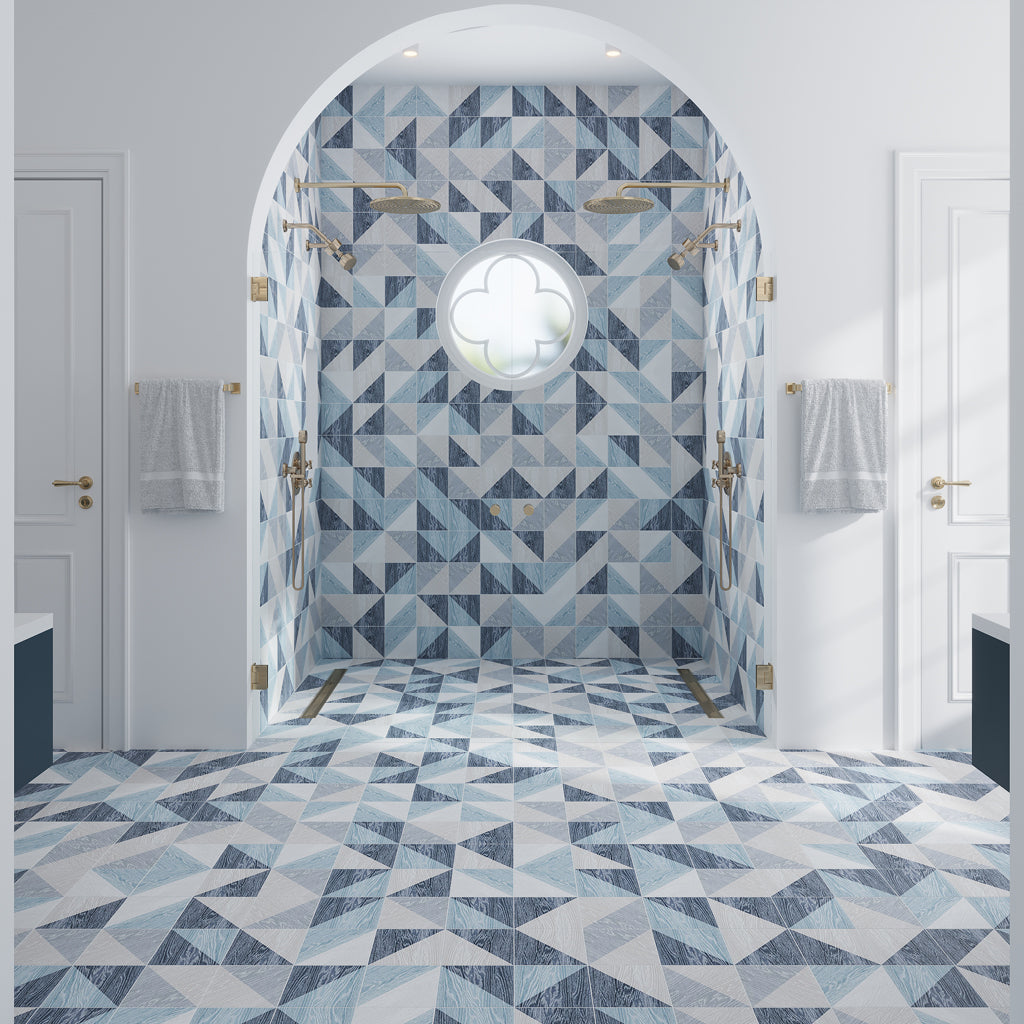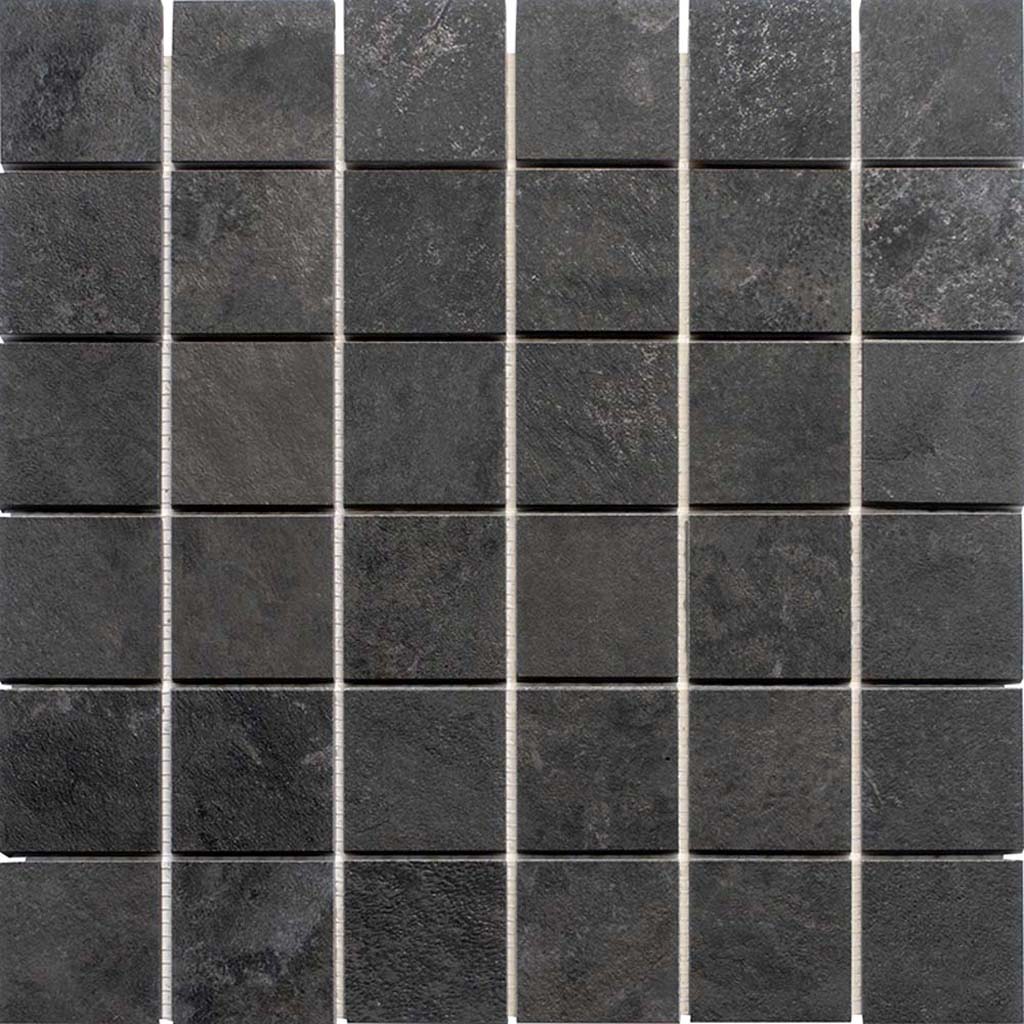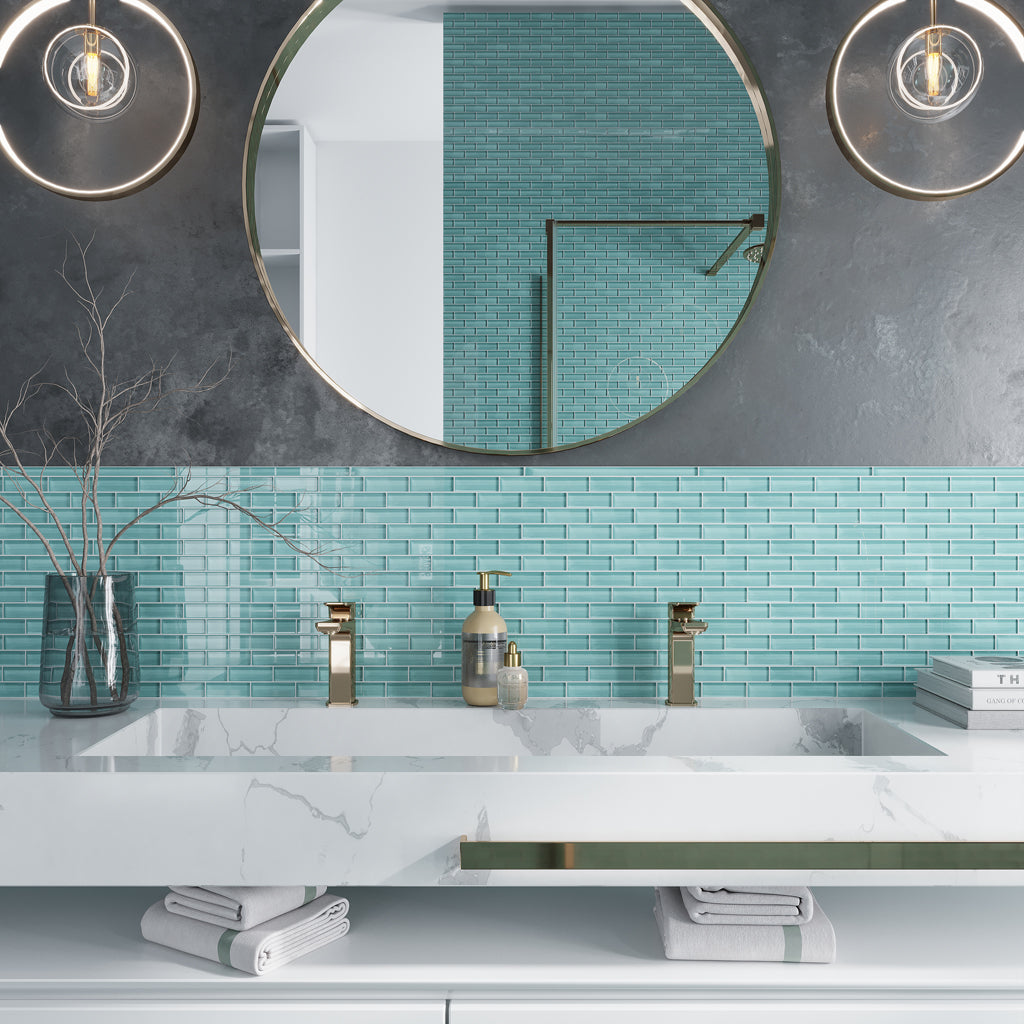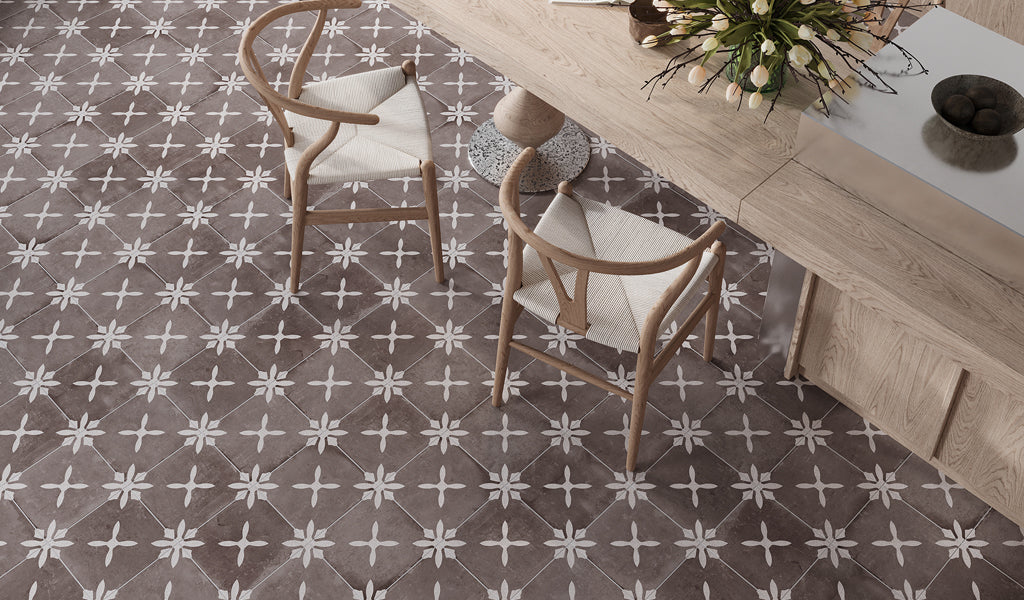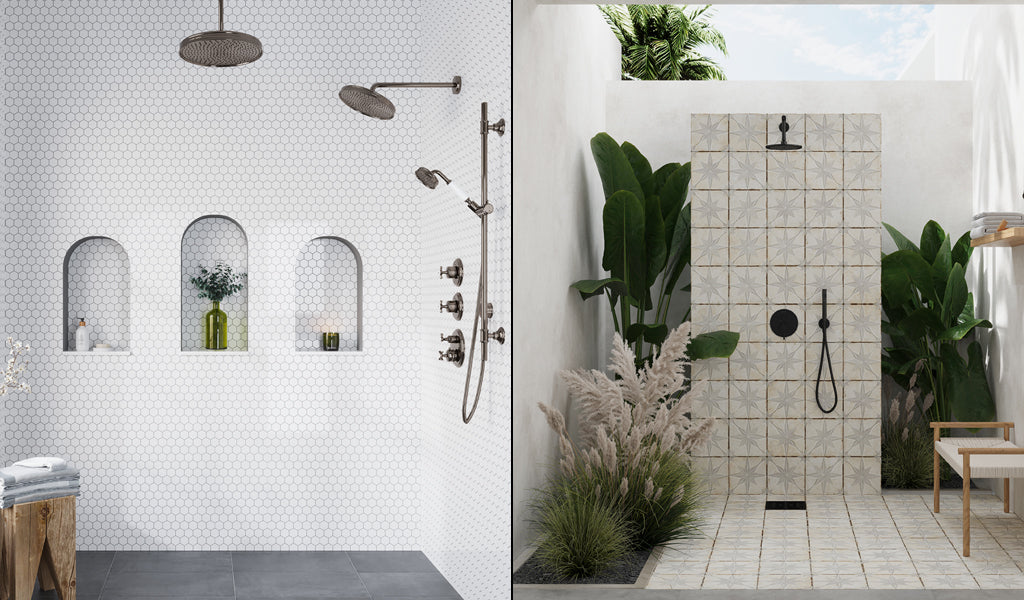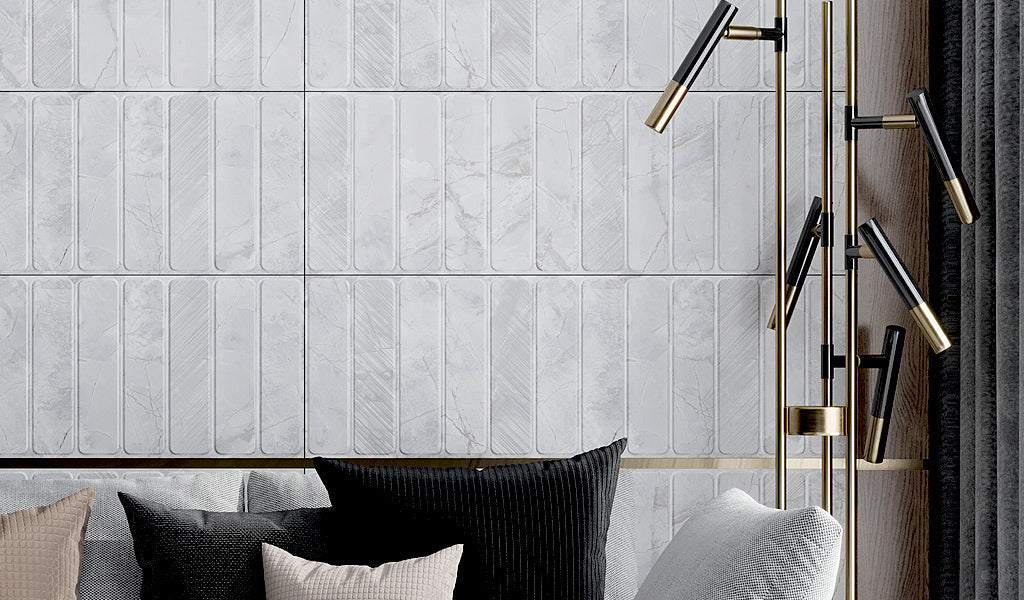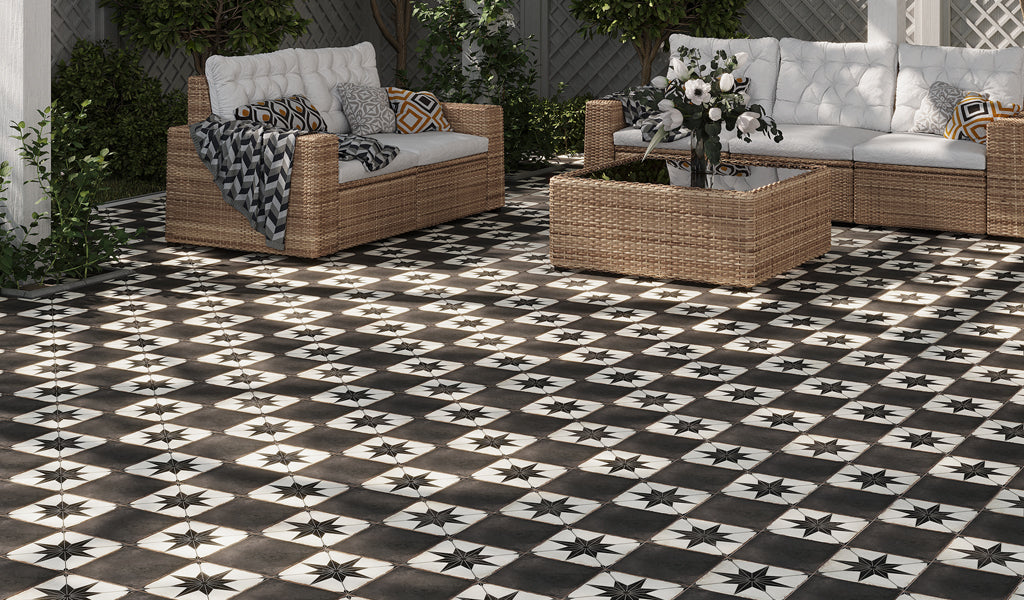The Ultimate Guide to Waterproof Flooring Options in 2024
Oct 30, 2024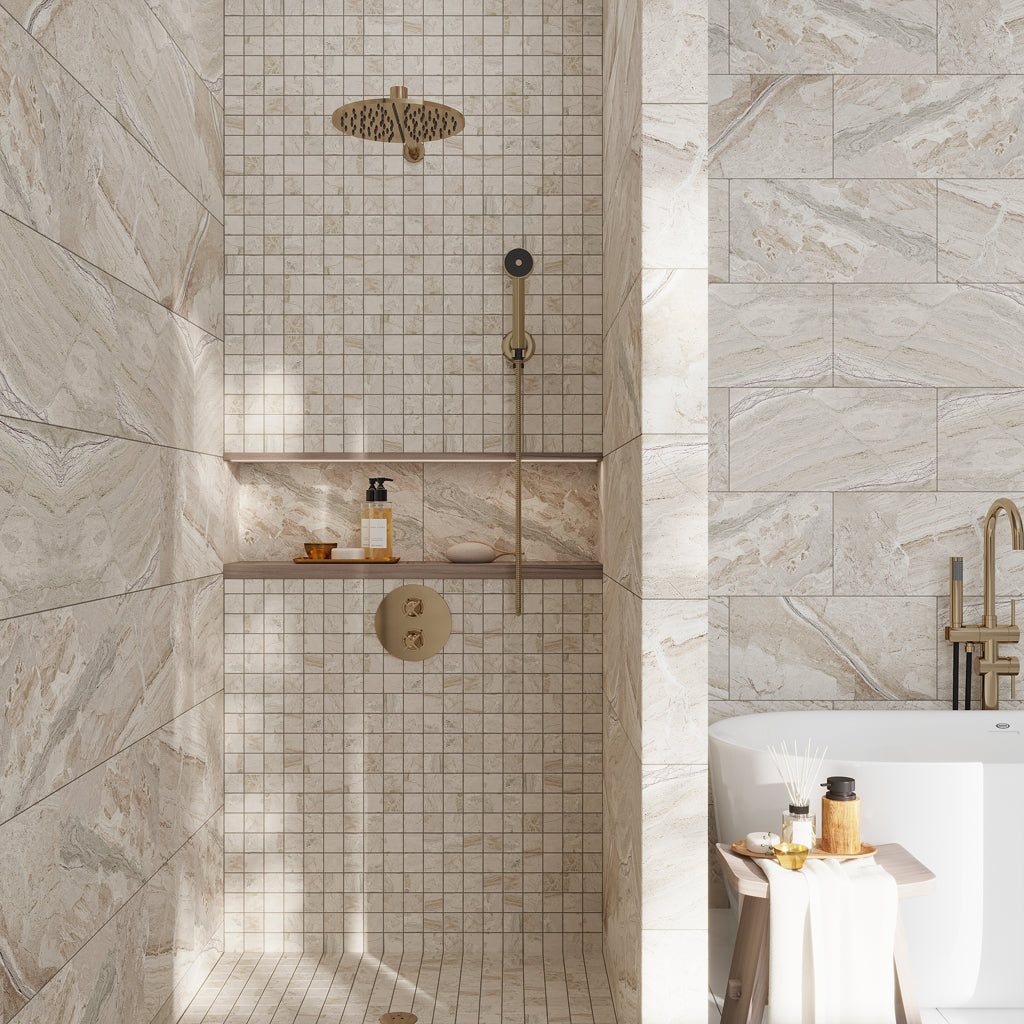
Life’s little messes can wreak havoc on your floors, resulting in unsightly stains and costly repairs. But what if your floor surface could handle anything life throws at it, all while looking effortlessly stylish? That’s the beauty of waterproof flooring!
Unlike water-resistant flooring, waterproof floors offer a physical barrier against water for a significant period without sustaining damage. If you’re looking for the best waterproof flooring for showers and around the bathtub, watertight tile options provide exceptional protection as they’re impenetrable.
Popular Waterproof Flooring Options
Porcelain tile is among the best waterproof flooring options for obvious reasons. It is made from refined clay and fired at extremely high temperatures for a long period of time. Due to its slightly different production process fromceramic tile, porcelain is harder, denser, and non-absorbent. Its ability to endure constant water exposure, indoors and outdoors, indicates robustness and longevity.
Like porcelain, glass tile is a waterproof flooring option that can be used indoors and outdoors without impact on its body. It is recommended for wet environments, including the bathroom, kitchen, laundry room, and swimming pool. Designs likeTiffany Blue 11.8 in. x 11.8 in. Pebble Polished and Honed Glass Mosaic Tile and Cerulean Blue 11 in. x 12.6 in. Herringbone Polished Glass Mosaic Tile provides superior resistance when used in submerged applications.
Factors to Consider When Choosing Waterproof Flooring
So, what key factors should you consider when selecting the best waterproof flooring? Let’s take a look:
- Material: The type of tiling material is a crucial characteristic when choosing waterproof flooring. Make sure to check product specifications to select the best tiles approved for your project.
- Appearance: Opting for waterproof tile flooring doesn’t mean skimping on style. You can find a plethora of stunning options to create a look that’s unique to your home or business. From geometric glass mosaics to wood-look porcelain, tiles are incredibly versatile and complement myriad décor styles.
- Grout: Your tiles might be waterproof, but your grout isn’t. This means water can seep into the subfloor through grout lines, causing damage to the application. To prevent this, make sure to select pre-sealed epoxy grout or seal regular grout during installation and periodically after.
- Maintenance: When choosing waterproof floors, consider maintenance. The good news is porcelain and glass are easy to keep in an immaculate state, making for the ideal shower floor tile—where mold and stains are a concern and soap build-up needs to be cleaned regularly.
Installation Process and Maintenance

The installation process for waterproof flooring is the same as regular tiles. Here are simple steps to follow:
- Make sure the surface is clean, dry, and level. Next, dry lay the tiles to determine a suitable layout.
- Mix and apply the adhesive to the surface, working in small sections so it doesn’t dry out before you complete the job.
- Place new tiles and add spacers between joints for uniform gaps. Allow adhesive at least 24 hours to dry, then move on to grouting.
- Remove spacers and grout the tiles. Allow the grout to slightly dry for about 10-15 minutes, then remove excess from the tile surface.
- Let the grout set and cure for 24 hours, then clean, dry, and shine the tiles with a soft microfiber cloth.
- Seal the grout lines according to the manufacturer’s instructions. This step adds a layer of protection against stains and water damage.
Since waterproof floors do not absorb liquid, they are easy to clean and maintain. The water settled on the tile surface can be wiped out. For regular upkeep, a solution of warm water and mild tile cleaner is sufficient.
Waterproof Flooring Trends in 2024
The popularity of waterproof flooring options continues to evolve with porcelain and glass tiles leading the way. Below are floor trends that are making their mark in 2024 and beyond:
1. Wood-look porcelain tiles
Hardwood tile offers the remarkable durability of porcelain with the natural beauty of real timber. They mimic the grains, knots, and shades of genuine wood to perfection; it’s hard to tell the difference. For geometric flair, our Blue 6.5-in W x 6.5-in L Matte Porcelain Wall and Floor Tile is a fabulous option.
2. Stone-look porcelain tiles
Loved for its earthy yet contemporary appeal, porcelain that mimics stone complements both modern and traditional design. Highlight an intriguing veining pattern, the Splendor 2 in. x 2 in. Matte Black Porcelain Mosaic Wall and Floor Tile is a timeless show-stopper.
3. Geometric glass mosaics
The interest toward glass mosaic tilework in recent years is greatly due to its reflective quality that lends striking depth and plenty of visual interest. At Apollo Tile, our palette of waterproof glass flooring offers an opportunity to make a swoon-worthy statement in just about any corner of your home.
4. Recycled glass tiles
Made from recycled glass pieces, this 2024 waterproof flooring trend will transcend the years thanks to the growing awareness of caring for the environment around us. Our Gray and Beige 11.5 in. x 11.5 in. Matte Finished Subway Recycled Glass Mosaic Tile is consistent in quality and a great option for the eco-conscious homeowner.
5. Bold-colored tiles
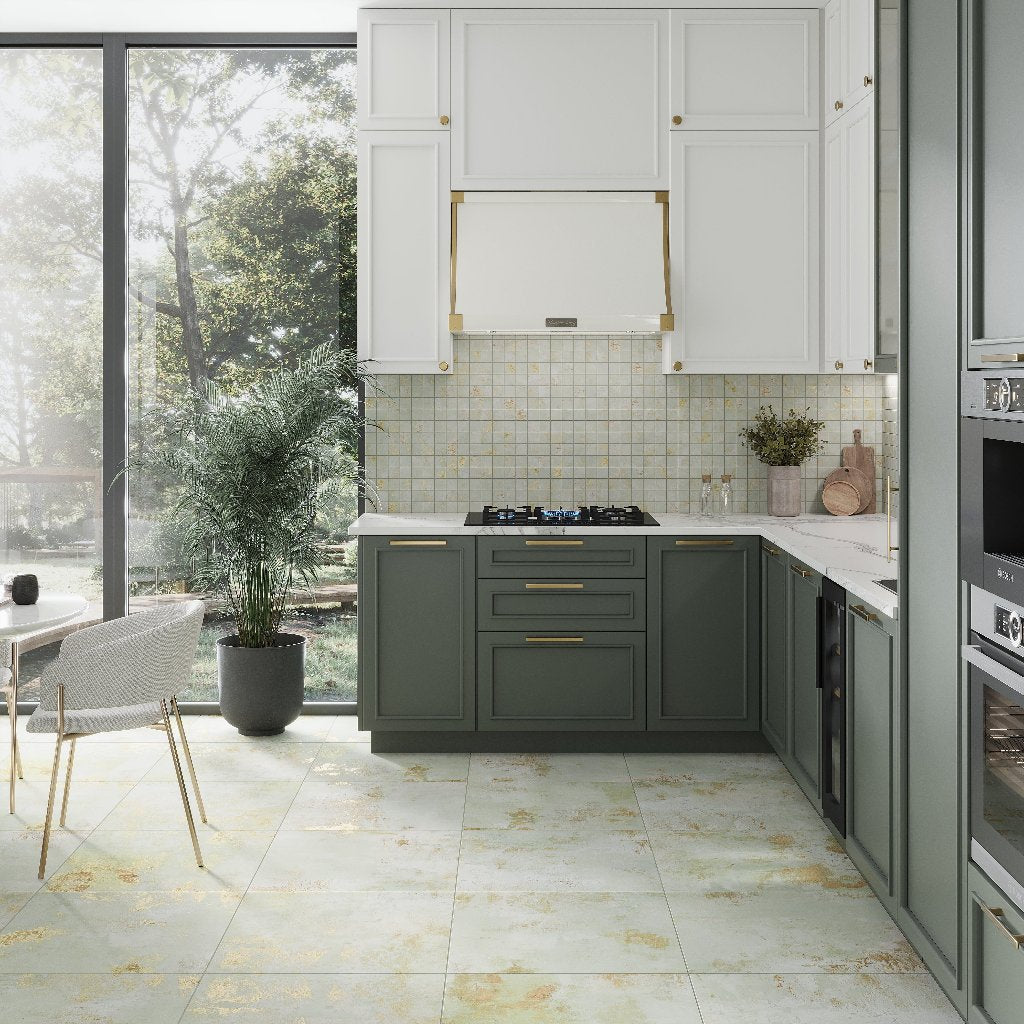
A closer look at this year’s waterproof tile flooring trends reveals that more homeowners are seeking bold choices to make a style statement. From green to purple to orange, vibrant tile colors in geometric patterns like penny round, hexagon, and basketweave are making a splash both indoors and outdoors.
Conclusion
Installing waterproof floors is a brilliant way to future-proof your design project. Be sure to keep our handy tips in mind so you’re ready to select the ideal flooring for your needs when the time comes. If you have any questions concerning waterproof tile flooring, our team at Apollo Tile is on hand to help you pick the perfect tiles for your space. And if you’re looking for amazing deals, including a 5% discount and same-day dispatch on your order, sign up for our Pro Membership Program and get access to your account in 24 hours. It’s packed with exclusive perks to make your shopping experience even better!
Frequently Asked Questions:
1. What are the most durable waterproof flooring options available?
Porcelain tiles are the most durable and robust waterproof flooring option and are suitable for wet areas like bathrooms.
2. Can waterproof flooring be installed in basements?
Waterproof floor tiles are a versatile and long-lasting solution and can be installed in the basement. To choose the best flooring, consider how you plan on using the area.
3. Are there any eco-friendly waterproof flooring options?
Porcelain is an ecological flooring made from natural clay and minerals through a production process that creates zero waste. Recycled glass tiles are also a watertight and environmentally friendly flooring option. Case in point: our Chiffon White 11.5 in. x 11.5 in. Matte Finished Subway Recycled Glass Mosaic Tile and White 12-in x 12-in Multi-finish Recycled Glass Hexagon Patterned Floor and Wall Tile.
4. What are the key differences between waterproof and water resistant flooring?
Waterproof floors can endure water exposure indefinitely without damage from it. Flooring labeled as water resistant can only be in contact with water for a limited period, typically 24-72 hours, without damage.
5. How long does waterproof flooring typically last?
Waterproof tile flooring like porcelain can last 50 years or more, depending on many factors such as quality, installation, and maintenance.
6. Are waterproof floors suitable for pets?
Since porcelain tiles are watertight, pet messes stay on the surface, making cleanup a breeze.
7. What type of waterproof flooring is best for a kitchen?
Porcelain and glass tile approved for flooring are long-lasting options for the kitchen.
8. Is it necessary to use an underlayment with waterproof floors?
It is not required but an underlayment with a waterproofing function can provide extra moisture protection, especially for areas in constant contact with water like bathrooms.


